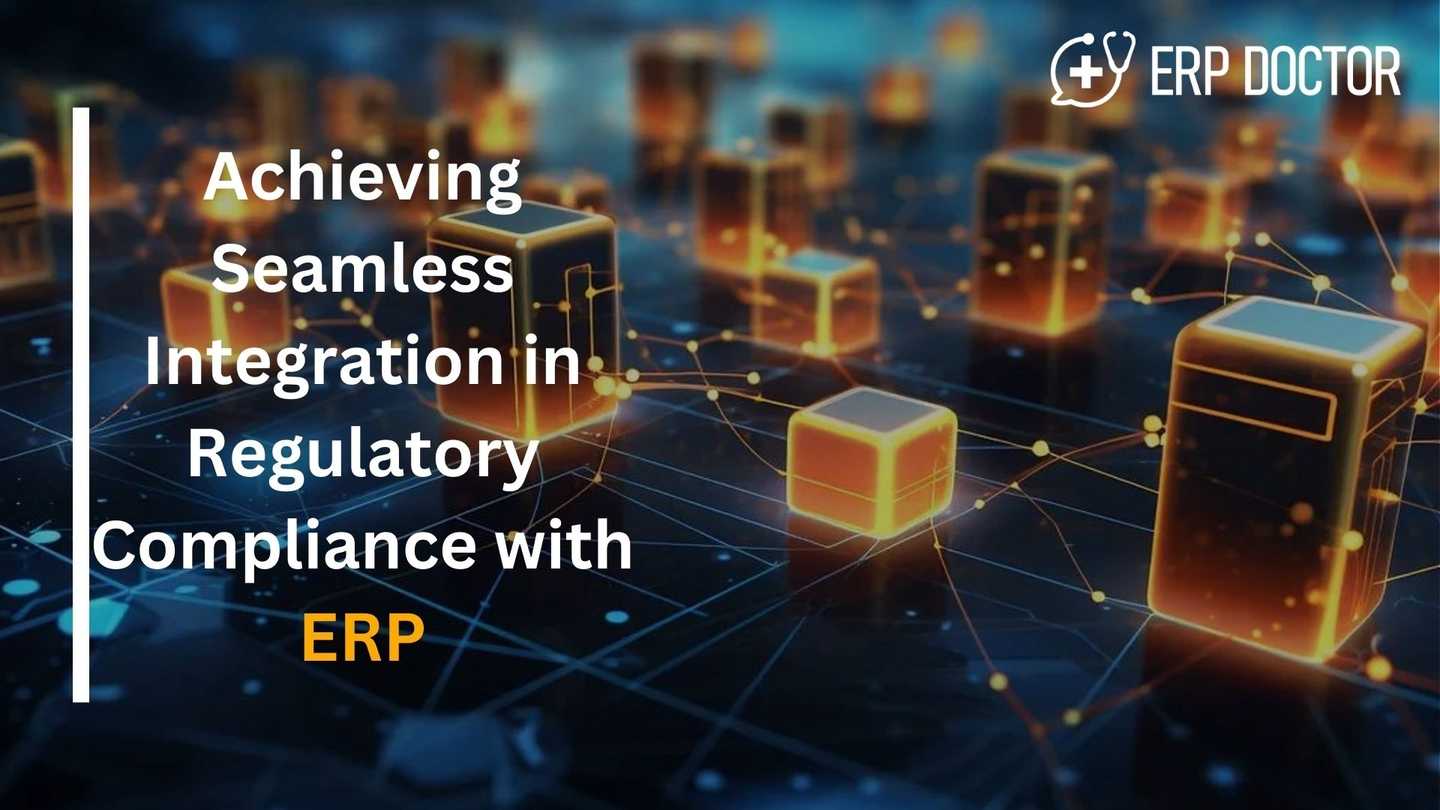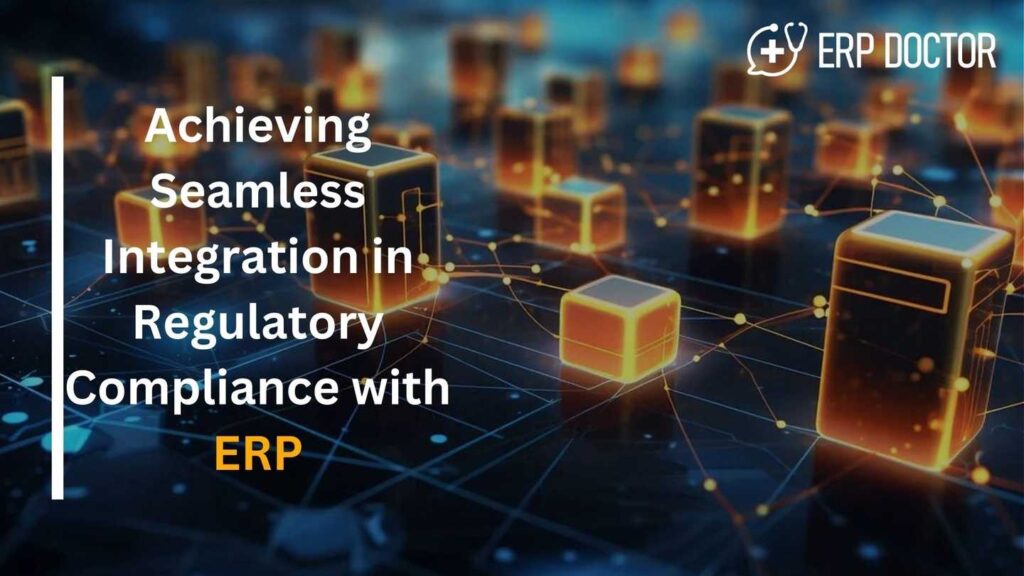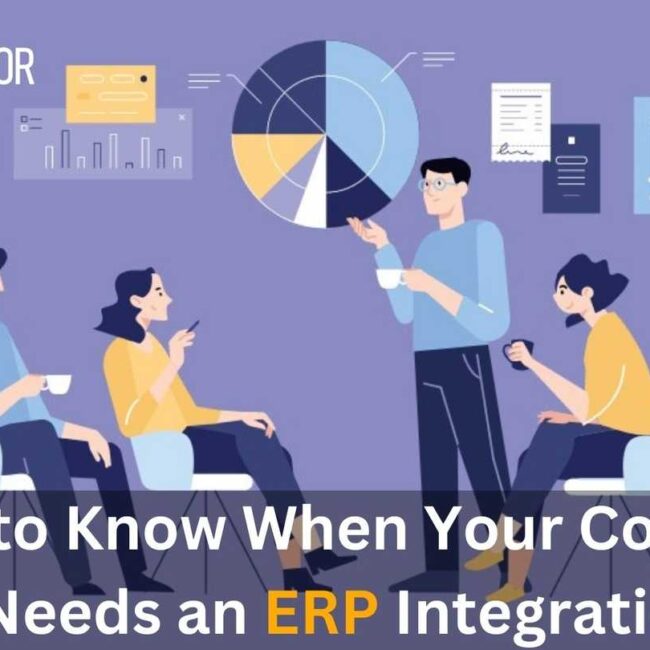
Achieving Seamless Integration in Regulatory Compliance with ERP

Know about Regulatory Compliance by Integrating with ERP Systems
In today’s complex business environment, ensuring regulatory and tax compliance is a critical priority for organizations worldwide. Compliance is not just about adhering to the laws and regulations but also about maintaining the integrity and reputation of your business. An efficient Enterprise Resource Planning (ERP) system can be a game-changer in achieving seamless integration in regulatory compliance, tax compliance, and managing subsidiary government exemptions.
Understanding Regulatory Compliance
Regulatory compliance involves adhering to laws, regulations, guidelines, and specifications relevant to your business processes. Non-compliance can lead to legal penalties, financial loss, and damage to reputation. As regulations evolve, businesses need a robust system to stay updated and ensure compliance.
The Role of ERP Systems in Regulatory Compliance
An ERP system integrates various functions of a business into a unified system, facilitating smooth operations and data flow across departments. Here’s how an ERP system can help in regulatory compliance:
- Centralized Data Management: ERP systems centralize all business data, making it easier to manage and access necessary compliance information.
- Real-time Reporting: With real-time reporting features, ERP systems enable businesses to generate accurate compliance reports quickly.
- Audit Trails: ERP systems provide detailed audit trails that track every transaction, ensuring transparency and accountability.
- Automated Updates: Modern ERP systems can be configured to automatically update compliance-related data, reducing the risk of human error.
Tax Compliance Simplified with ERP Systems
Tax compliance is a critical aspect of regulatory compliance. Businesses must adhere to tax laws, file returns on time, and ensure accurate tax reporting. An ERP system can simplify tax compliance in several ways:
- Automated Tax Calculations: ERP systems can automatically calculate taxes based on the latest tax laws, reducing manual errors.
- Timely Filing: ERP systems can generate reminders for tax filing deadlines, ensuring timely submissions.
- Comprehensive Tax Reports: Detailed tax reports can be generated with ease, facilitating accurate tax return filings.
- Integration with Tax Authorities: Some ERP systems offer integration with tax authority portals, streamlining the submission process.
Managing Subsidiary Government Exemptions
For multinational companies, managing subsidiary government exemptions can be challenging. Different countries have different regulations and exemptions. An ERP system can help in:
- Localized Compliance: ERP systems can be configured to handle local compliance requirements for each subsidiary, ensuring adherence to regional laws.
- Consolidated Reporting: Despite having localized compliance, ERP systems can consolidate data from all subsidiaries, providing a comprehensive view of the organization’s compliance status.
- Streamlined Communication: ERP systems facilitate seamless communication between the parent company and subsidiaries, ensuring consistent compliance practices.
- Exemption Management: ERP systems can track and manage various government exemptions, ensuring subsidiaries benefit from all applicable exemptions without risking non-compliance.
Achieving seamless integration in regulatory compliance with an ERP system is not just a best practice but a necessity in today’s dynamic business environment. By leveraging the capabilities of an ERP system, businesses can ensure regulatory and tax compliance, manage subsidiary government exemptions efficiently, and maintain a strong reputation in the market. Investing in a robust ERP system is a strategic move towards safeguarding your business against compliance risks and ensuring smooth operations across all levels of the organization.
To learn more about our services, please visit us at: https://erpdoctor.in/
Embark on an inspiring journey today – Visit our website and discover a world of knowledge, creativity, and endless possibilities! Don’t miss out on exclusive content and exciting updates. Click here to explore and be part of our thriving community!






